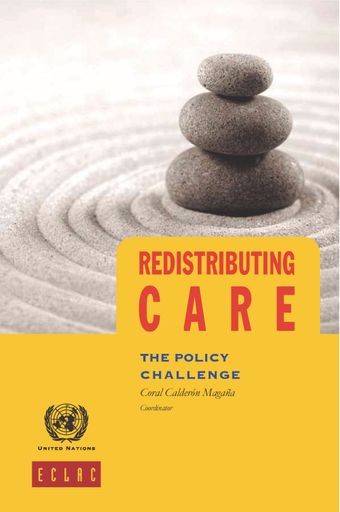- Home
- Books
- Redistributing care
- Chapter
Home care and the recovery of subjectivity: The case of Mexico

- Author: Atenea Flores-Castillo
- Main Title: Redistributing care , pp 385-414
- Publication Date: December 2013
- DOI: https://doi.org/10.18356/fb0a876f-en
- Language: English
- Previous Chapter
- Table of Contents
- Next Chapter
Most research on how population ageing affects labour needs and availability in the care sector, and on the implications for the independence and autonomy of women (as unpaid or poorly paid labour), has been conducted from the viewpoints of demography and economics. But human complexity being as it is, the research should also extend to other disciplines that can take affective and emotional aspects into account. Thus, the recommendation that care services be provided in a way that is functional for the development of the economic system —and which, as a consequence, affords priority to those who engage or will engage in economic reproduction— must be complemented by an integrated approach that considers the recipients of care, regardless of the place they occupy in the economic system, their age or any other individual characteristic. That is, as well as looking at what is happening in society and in the family, research must explore what happens to the individuals receiving and giving care.
© United Nations
ISBN (PDF):
9789210560177
Book DOI:
https://doi.org/10.18356/1884a832-en
Related Subject(s):
Economic and Social Development
Sustainable Development Goals:
-
From This Site
/content/books/9789210560177s005-c005dcterms_title,dcterms_subject,pub_keyword-contentType:Journal -contentType:Contributor -contentType:Concept -contentType:Institution105
/content/books/9789210560177s005-c005
dcterms_title,dcterms_subject,pub_keyword
-contentType:Journal -contentType:Contributor -contentType:Concept -contentType:Institution
10
5

